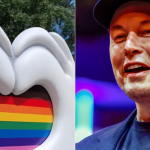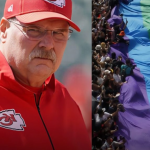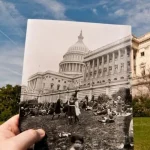The Kansas City Chiefs have stirred controversy by announcing they will not sponsor a Pride Night event at Arrowhead Stadium, citing concerns over what they termed the “woke agenda.”
The decision has sparked heated debate among fans and on social media, becoming one of the NFL season’s most polarizing off-field developments.
In an official statement, the Chiefs’ management explained their stance, surprising even some of their most loyal supporters. “Football is about unity, strength, and perseverance,” the statement read. “It’s not about making political statements or advancing a ‘woke agenda.’
Our focus is on representing our community and playing the game. As such, the Kansas City Chiefs will not be hosting a Pride Night.”
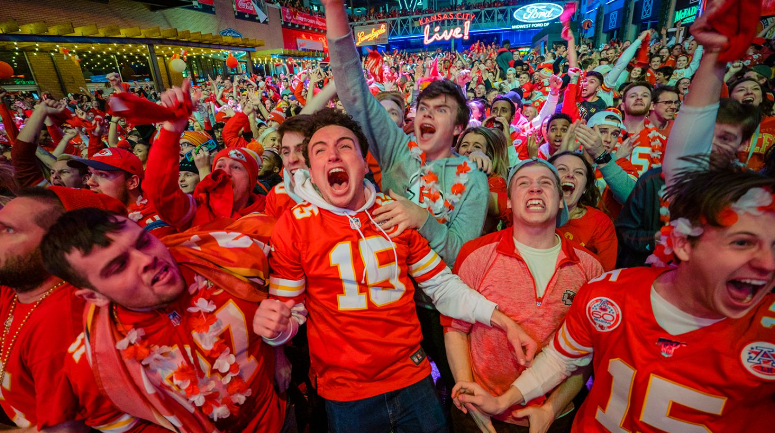
Pride Nights have become a hallmark of professional sports across the country, with many NFL teams embracing LGBTQ+ inclusivity through similar events.
The Kansas City Chiefs’ decision to forgo hosting one starkly contrasts with this trend, positioning them apart from numerous other teams that have celebrated diversity and acceptance.
The response to the Chiefs’ stance has been sharply divided. Supporters have praised the team for “staying true to football” and steering clear of what they see as political statements.
Critics, however, view the move as a significant setback in societal progress, arguing it undermines efforts to foster inclusivity within the sport and the broader community.
While the Kansas City Chiefs’ management stands firm in their decision, the players’ reactions have been notably mixed.
Patrick Mahomes, the team’s star quarterback, carefully distanced himself from the controversy, stating, “I’m here to play football, not politics. But I do think everyone deserves respect, both on and off the field.”
Tight end Travis Kelce, known for his charismatic personality, took a lighter approach during a media conference.
With a chuckle, he remarked, “I guess I’m a little confused because I wear glitter on my cleats sometimes. But honestly, winning games is what we’re all about here.
That stuff will be left to the front office.” His humor resonated with fans, earning widespread praise on social media and sparking a wave of support for his candid take on the issue.
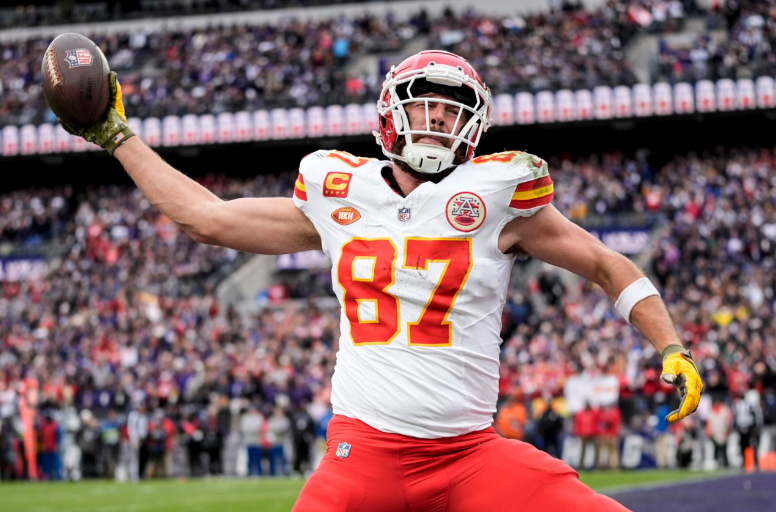
Kicker Harrison Butker, known for his more conservative views, seemed to align with the team’s leadership on the matter.
“It’s just football,” Butker stated. “I believe people have had enough of everything being politicized. Let’s simply play the game, which is what we do best.”
His comments underscored a different perspective within the team, emphasizing a desire to focus on the sport rather than engage in broader social discussions.
Unsurprisingly, social media quickly became a battleground for the controversy, with hashtags like #WokeFreeChiefs and #CancelTheChiefs trending on Twitter.
Users took firm stances, some applauding the Chiefs for staying focused on the game, while others accused the team of alienating a significant portion of its fan base.
“Finally, a team that’s not afraid to say NO to the woke mob,” tweeted @ProudFan88. “Football is not for advancing political causes; it’s about football. Chiefs for life!”
In contrast, others expressed disappointment, arguing that inclusivity should be part of the sport’s ethos. One critic wrote, “This decision sends the wrong message.
Football is for everyone, not just for those who think like you.” The debate highlighted the broader societal divide, with the Chiefs’ decision serving as a flashpoint.
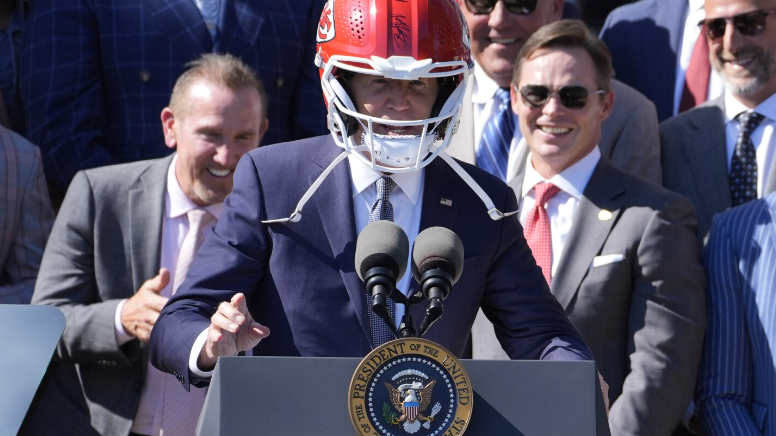
On the other side of the debate, @EqualityFanKC voiced strong disapproval, tweeting: “Wow, way to make your LGBTQ+ fans feel completely excluded.
Football is meant to unite people, not divide them. I had higher hopes for the Chiefs.”
This sentiment was echoed by others who argued that inclusivity is a core part of fostering unity within sports. For them, the Chiefs’ decision felt like a step backward, prompting calls for the team to reconsider its stance.
The online debate reflected the deep divisions on the issue, with fans passionately defending their views.
The NFL, typically cautious about wading into polarizing debates, has yet to release an official statement regarding the Kansas City Chiefs’ decision.
Meanwhile, other teams were quick to make their stances known, each in their own distinct way.
The San Francisco 49ers, known for hosting one of the league’s most vibrant Pride Night celebrations, took to Twitter with a simple yet powerful message.
They posted a rainbow emoji accompanied by the caption, “Everyone is welcome here.”
True to their reputation for grabbing headlines, the Dallas Cowboys also weighed in. Announcing an upcoming collaboration with a prominent LGBTQ+ advocacy group, they posted, “Football is for everyone.
We’re going to have our best Pride Night yet at AT&T Stadium!” The statement signaled their commitment to inclusivity and sparked excitement among fans looking forward to the event.
Other teams are seizing the moment to distance themselves from the Chiefs’ decision, making it clear where they stand on the cultural divide.
By choosing their position, the Chiefs have placed themselves firmly on one side of this contentious issue, leaving their strategy open to interpretation.
Whether this move will ultimately benefit or harm the Chiefs remains uncertain, but one thing is clear: the broader NFL community is not staying silent.
From social media statements to public events, teams across the league are making their voices heard, reflecting the growing tension between tradition and progress within professional sports.
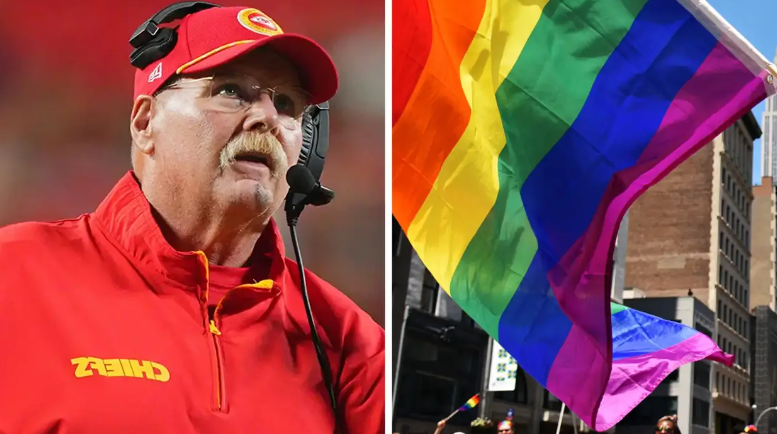
As expected, the controversy drew reactions from celebrities and political figures alike. Candace Owens, a prominent conservative commentator and self-proclaimed Chiefs superfan, commended the team’s decision during her podcast.
“This is precisely what we need more of,” she said. “A team that just plays football and opposes this absurd woke agenda. At last, someone understands!”
In stark contrast, LGBTQ+ activists, including celebrities Ellen Page and Billy Eichner, expressed their dismay.
Page took to Twitter, calling the decision “disgusting” and lamenting, “The NFL and sports in general have taken a significant step backward with this.” Eichner echoed the sentiment, urging teams and leagues to stand firmly for inclusivity, framing the Chiefs’ move as a disappointing regression.
The polarizing responses underscore how deeply this decision has resonated beyond the sports world, amplifying the cultural conversation around inclusion and tradition.
Politicians also weighed in on the debate. In a tweet, Senator Ted Cruz commended the Chiefs for “standing firm against the tide,” while Representative Alexandria Ocasio-Cortez seized the moment to advocate for a broader conversation on inclusivity in sports.
She tweeted, “This is a teachable moment. We must ensure that our athletic institutions reflect the values and diversity of their supporters.”
While the Chiefs’ management likely anticipated some criticism, they may not have predicted the potential financial fallout. Several sponsors, including a major retail brand and a prominent local brewery, have reportedly reassessed their partnerships with the team.
An anonymous source from a major company indicated that the Chiefs’ marketability could be impacted by this decision.
It’s 2024, and according to the insider, brands are reluctant to be associated with exclusion. “We may need to reconsider supporting a team that doesn’t align with our inclusive and diverse values,” the source said.
As the regular season kicks off, attention will likely shift back to the action on the field. However, the Chiefs will probably continue to face backlash over their decision to skip Pride Night.
The question remains: Will the team yield to increasing pressure from sponsors, fans, and even players, or will they hold firm in their stance?
As of now, the Kansas City Chiefs have made their decision, and its impact on the team—both on and off the field—remains to be seen.
There’s no denying that the Chiefs are at the heart of an ongoing debate about the intersection of politics and sports.
Whether they welcome it or not, the Chiefs are poised to have a season remembered as much for their stance on what they view as the “woke agenda” as for their performance on the field.
